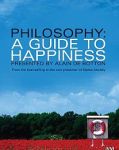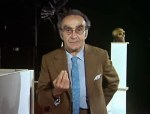What the Bleep Do We Know!? (also written What tнē #$*! D̄ө ωΣ (k)πow!? and What the #$*! Do We Know!?) is a 2004 film that combines documentary-style interviews, computer-animated graphics, and a narrative that posits a spiritual connection between quantum physics and consciousness. The plot follows the story of a photographer as she encounters emotional and existential obstacles in her life and begins to consider the idea that individual and group consciousness can influence the material world. Her experiences are offered by the filmmakers to illustrate the movie’s thesis about quantum physics and consciousness. The 2004 theatrical release of the film was followed by a substantially changed, extended DVD version in 2006.
Bleep was conceived and its production funded by William Arntz, who co-directed the film along with Betsy Chasse and Mark Vicente: all three were students of Ramtha’s School of Enlightenment.[1] A moderately low-budget independent production, it was promoted using viral marketing methods and opened in art-house theaters in the western United States, winning several independent film awards before being picked up by a major distributor[2] and eventually grossing over $10 million.[3][4]
The film has been criticized for both misrepresenting science and containing pseudoscience and has been described as quantum mysticism.
http://en.wikipedia.org/wiki/What_the_Bleep_Do_We_Know!%3F
http://www.whatthebleep.com/whatthebleep/
http://www.imdb.com/title/tt0399877/
http://topdocumentaryfilms.com/what-the-bleep-do-we-know/
http://skeptico.blogs.com/skeptico/2005/04/what_the_bleep_.html















You must be logged in to post a comment.